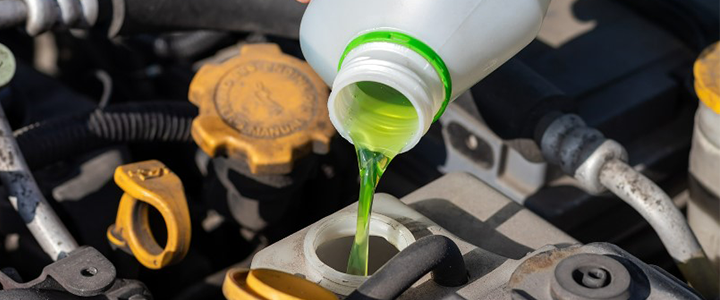
Automotive Antifreeze
Antifreeze is used as an engine coolant and commonly consists of ethylene glycol or propylene glycol. Antifreeze breaks down over time and forms acids, which corrode the vehicle’s cooling system. During its use, antifreeze may become contaminated with traces of fuel, metal particles and grit. Used automotive antifreeze often contains benzene, lead and other toxic ingredients. It is flammable and should be managed as hazardous waste.
Antifreeze can be recycled or disposed at a local transfer station, automotive shop, motor vehicle recycling facility, or a household hazardous waste (HHW) collection event or permanent facility.
Questions?
Households and municipalities should contact the NHDES HHW Program via email at hhw@des.nh.gov or by phone at (603) 271-2047.
Universal wastes are a subcategory of recycled, hazardous wastes. Read our universal waste blog to learn more!
Visit our Managing My Waste page to learn about other types of household waste.




